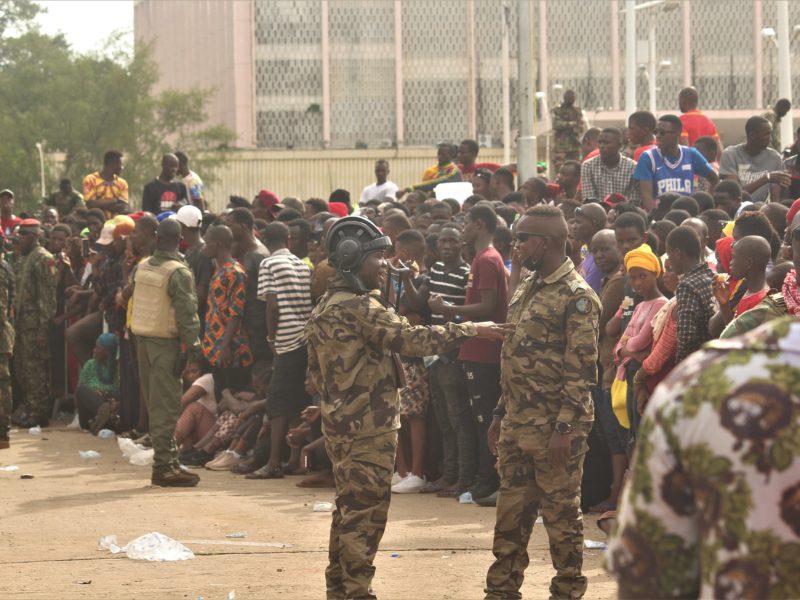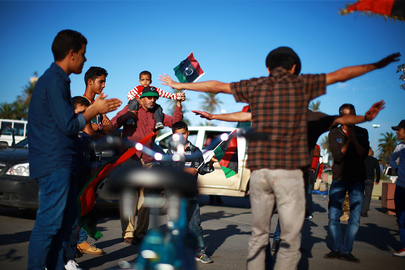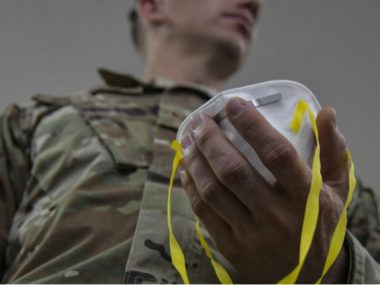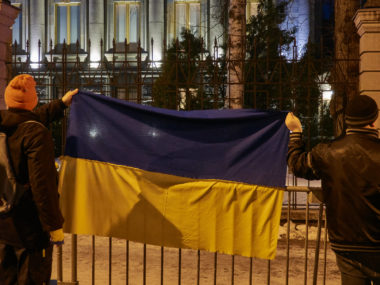Guest post by Jonathan Powell and Salah Ben Hammou
Coups in Africa have reached crisis proportions. Since Niger’s failed March 2021 coup, coup attempts have progressed at a rate rivaled only by the continent’s original coup epidemic in the mid-1960s. Just last week, soldiers attempted but ultimately failed to take power in Guinea-Bissau. While West Africa—and more specifically, the Sahel—receives the most attention, coups are happening across the continent, from the Atlantic Ocean to the Red Sea.
Although coups are by nature domestic affairs, the international community plays a key role in the politics that drive them. Would-be coup plotters closely consider the potential responses of foreign actors, and observe and learn from recent precedent. A meek international response to coups could embolden would-be coupists to take power and vice versa.
Following this logic, it appears that coupists are learning to circumvent the international community’s typical demand in post-coup situations—that elections be held—to entrench themselves in power.
To be clear, the international community is rarely able to “reverse” a coup—i.e., reinstate the ousted leader. Of the dozens of successful coups in Africa since 1950, only a few have seen this outcome. For instance, French paratroopers reinstated President Léon M’ba in 1964 in Gabon. Peacekeeping forces under the Economic Community of West African States Monitoring Group successfully reinstated Sierra Leone’s Ahmad Tejan Kabbah to the presidency in February 1998. South Africa upended Lesotho’s post-coup government with a unilateral intervention in 1998. São Tomé and Príncipe saw its 2003 coup leaders quickly retreat following international backlash, including the specter of a Nigerian military intervention. These kinds of interventions are usually only possible in small and militarily weak states. In fact, efforts to reinstate leaders have virtually vanished despite the fact that various leaders have ostensibly embraced an anti-coup norm, and organizations such as the African Union (AU) are heralded for curbing the practice. In the case of the AU, it would be difficult to claim a single case of success. Simply put, when leaders are removed, they “stay gone.”
Rather than seek the return of ousted leaders, international and regional actors have instead emphasized a “return to constitutional order.” For instance, following the death of Chadian President Idriss Déby in April 2021, the military assumed power and abolished the constitution, which called for the Speaker of Parliament to take power in the event of the president’s death. Several countries, including France, urged the coupists to initiate a political transition—which would require the post-coup junta to hold or allow elections—rather than designate power back to parliament. (The junta has stated its intention to tentatively hold elections within 18 months.)
Post-coup elections once meant that coupists would hand power back to civilians and depart from politics, particularly after the AU’s formation in 2002. For instance, among eleven different coups across the continent between 2003 and 2012, only two (Togo 2005, Mauritania 2008) saw a coupist retain power via election.
More recently, however, that trend has reversed. Military coups in Egypt (2013) and Zimbabwe (2017) saw coup leaders or their close associates retain power via elections. The only potential recent exception is Burkina Faso, where, following Blaise Compaoré’s 2014 ouster, elements of the armed forces took power and ushered the country toward democratic elections that were not contested by coupists.
Another pattern is at work, however. Though coups in Mauritania (2005), Egypt (2011), Mali (2012), and Burkina Faso (2014) were followed by elections free from coupist participation, these cases saw the armed forces re-intervene against the electoral victors. For instance, Egyptian President Mohamed Morsi, the victor of the 2012 post-coup elections, was deposed in 2013 by General Abdel Fattah al-Sisi, who went on to win the presidency in the 2014 election with little pushback from the international community. Mauritania’s 2008 coupist, General Mohamed Ould Abdel Aziz, would go on to win the presidency in the country’s 2009 and 2014 elections but did not seek reelection in 2019. In a highly contentious case accompanied by substantial international pressure, Madagascar (2009) saw a coupist, Andry Rajoelina, reluctantly step away from contesting the election. He did, however, return to win the presidency via the next election in 2018.
What do these developments suggest? Despite the international community’s view that elections might drive coupists from politics, the armed forces and their associates are in fact entrenching themselves in power, either directly through the use of elections or in spite of them. This trend coincides with the rise of democratic backsliding and executive aggrandizement, in which incumbents use democratic institutions such as popular mandates or elections to erode checks against their political power. Paradoxically, coup leaders have increasingly cited executive aggrandizement as a key reason for their intervention into politics. For instance, Guinea’s September 2021 coup saw Colonel Mamady Doumbouya topple President Alpha Condé, citing the president’s “non-respect of democratic principles.” For context, despite the constitution’s two-term limit, Condé had won reelection for a third term in 2020, sparking mass unrest and leading to allegations of electoral fraud and democratic erosion. The question now becomes whether Guinea’s armed forces will use the country’s elections—which have still not been announced—to similarly entrench themselves or if the junta will make good on its promise to bar its members from running as candidates.
Ultimately, efforts to preserve or initiate democracy in post-coup states will require the international community to move beyond the simple demand that elections be held. Rather than issuing a yellow card that tells coupists such as Egypt’s Abdel Fattah al-Sisi to tread carefully while remaining on the pitch, the international community must unequivocally demonstrate that coupists face lifetime bans from holding power.
Jonathan Powell is an Associate Professor of Political Science at the University of Central Florida. Salah Ben Hammou is a PhD student of Security Studies at the University of Central Florida.







